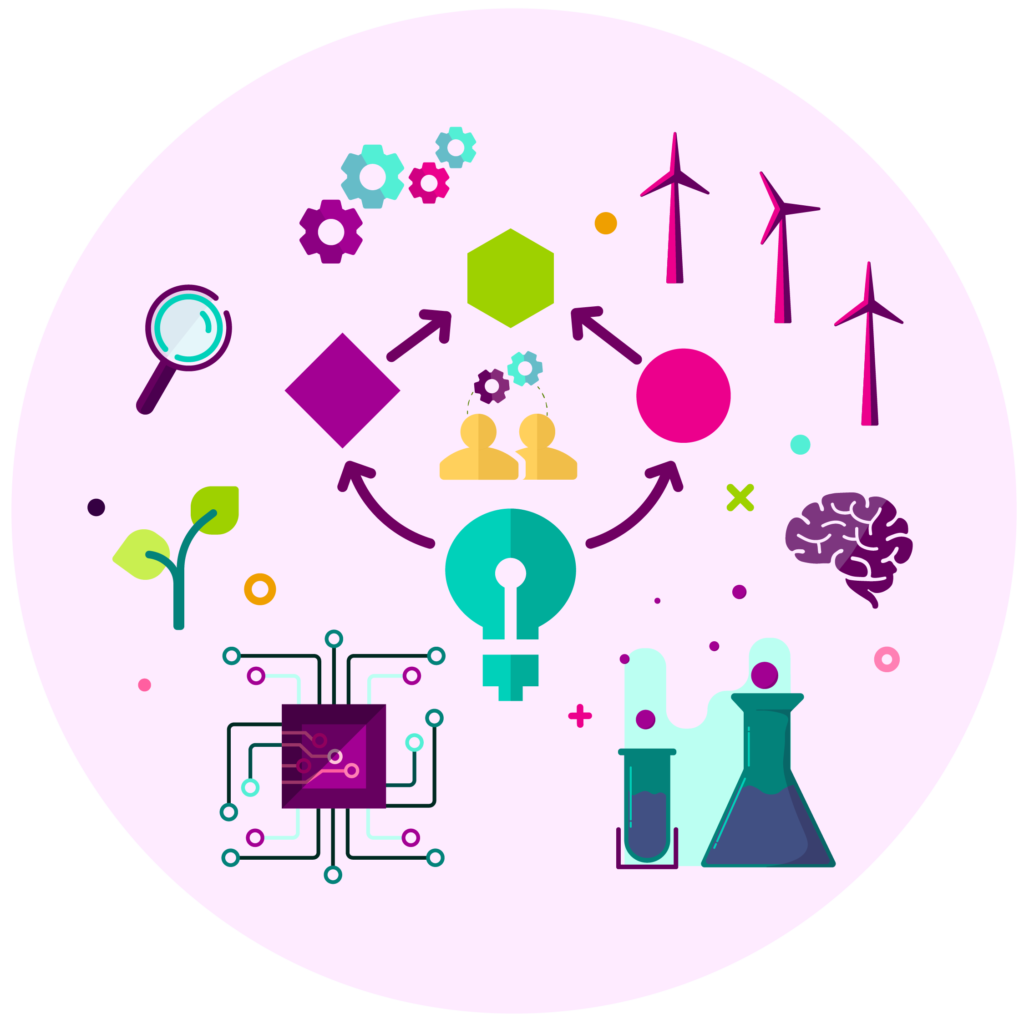Innovation and Scaling
As the Canadian skills development ecosystem navigates an ever-changing labour market, it is now more important than ever to adapt and change in the face of emergent technologies, the transition to sustainability and the post-COVID-19 recovery. Adapting to these shifts and dismantling the systemic barriers faced by underrepresented groups, is helped significantly through the funding and facilitation of future-focused innovation that drives inclusive economic prosperity and growth.
At FSC, we embrace the design and testing of bold ideas and the teams behind them. Our approach, as seen in our Innovation Lab, involves tackling barriers to innovation and incentivizing our partners to build, test, critically assess, replicate and scale innovative approaches and ideas — and bring those solutions back to policymakers and the ecosystem.

Key Insights
88% of projects in our accelerator program iterated on their original idea, enhancing their previous designs, with many incorporating data and feedback directly from key stakeholders.
Innovative skills initiatives are most successful when they are focused narrowly on one or two sectors in a relatively small regional or local economic geography.
96% of projects involved in our accelerator program believed their results on innovation were worth the time, resources and effort invested in participating.

Skills for lnnovation: international case studies

The Innovation Lab at FSC
The Issue: Barriers to innovation persist
Innovation is often presented as a panacea to all challenges within the skills development ecosystem. However, in practice, innovating is hard work, with many ecosystem actors facing organizational and systemic barriers that prevent them from developing the next generation of skills solutions.
Organizational barriers include insufficient resource allocation for innovation, low leadership and staff buy-in, challenges with implementing an innovation mindset or lack of tools and change management planning.
Among the systemic barriers to innovation is the widespread emphasis on outputs and reporting success, reliability, and efficiency in the ecosystem, particularly by funders. This can restrict the very innovation the financial backers seek to facilitate. Traditional funding relationships incentivize a culture of only sharing good news stories and minimizing what is not working, inhibiting learning and adaptation from failures.
Innovation requires patience, persistence, risk taking and pursuing new ways of working and collaborating — not the replication of established practices. However, many organizations implementing established approaches can also develop improved programs, adopt innovative practices, and explore new ideas simultaneously — if they are given the right resources and support.
Scaling innovation requires a commitment to documenting the journey and investing in feasibility studies and pilots that test and iterate ideas where learning and evaluation are built in from the beginning. When these systems are in place, the result is a cycle of continuous improvement that allows for broader reach and a playbook for others to try proven approaches on new populations in new contexts.
Why It Matters
The labour market and the world of work is changing rapidly. Despite the explosion of innovation and adoption of new technologies in the skills ecosystem, the skills sector continues to face challenges in identifying what works for whom and in what context, and in sharing lessons learned more widely.
To make innovation more impactful, and to scale approaches that work, educational and training institutions need to partner with employers to better understand their skills needs and how to assess them. All partners need to make investments in evaluation in order to produce lessons learned and a roadmap for others looking to scale their success. Scaling innovative approaches that work has the potential to help workers get the skills they need and help employers address their skills gaps.




